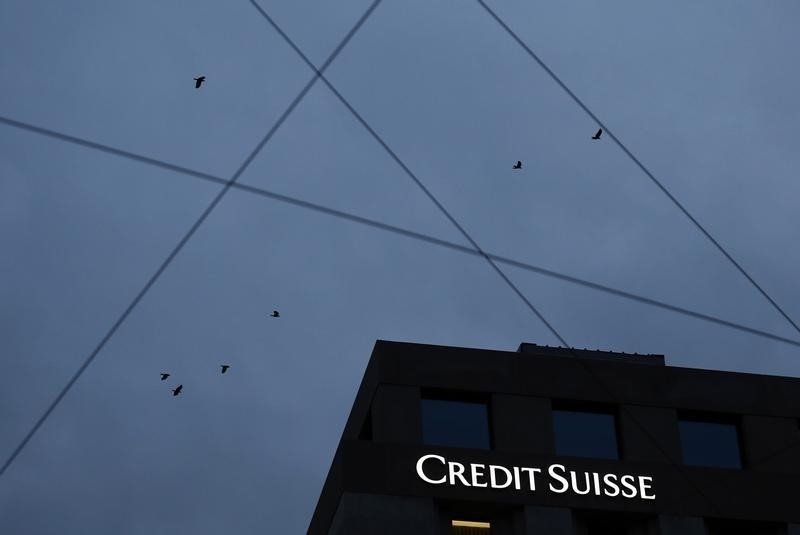By Nishant Kumar
LONDON (Reuters) - Credit Suisse (VX:CSGN) is preparing to move a London and Paris-based trading team out of its investment banking unit and into its asset management arm to raise external capital, sources familiar with the matter said.
The team, currently part of the bank's Systematic Market-Making Group (SMG), will be led by the group's Paris-based co-head Pierre-Yves Morlat and manages about $750 million (£492.2 million) in internal capital, the sources said.
The move is partly a result of regulations enacted after the 2008 financial crisis that restricts banks from trading with their own capital.
It also allows Credit Suisse to scale-up the business by raising funds from external investors like a hedge fund, earn attractive fees and reward and retain its successful traders.
A Credit Suisse spokesman declined to comment. Sources declined to be named as the plan was private.
The team that Morlat co-heads with New York-based Nick Branca makes money for the bank and executes some strategies similar to hedge funds by trading across all asset classes.
Branca is not part of the team that is preparing to move by the end of the year or early next year, one of the sources said. The source also could not provide the team size as the plan was at an early stage.
Credit Suisse had hired Morlat, a former Societe Generale (PA:SOGN) executive, in 2009 in London as head of proprietary arbitrage trading for Europe, Asia, Middle East, and Africa.
Jon Kinderlerer, a managing director at Credit Suisse in New York, is advising the team on product development and raising capital, the sources said.
Trading teams within banks made hundreds of millions of dollars in revenues for banks through bets similar to those by hedge funds, but have seen their fortunes fade in recent years.
Most of these groups have shut down or moved out of investment banks to launch their own hedge funds as regulations framed in the United States after 2008, known as the Volcker Rule, aim to curb risky proprietary trading by financial institutions.
The Volcker Rule also applies to foreign banks with branches in the United States, but there are fewer restrictions on non-U.S. banks.
Moves like the one by Credit Swiss is a middle ground that allows banks to avoid potential regulatory issues and at the same time benefit from the trading talent they have groomed over the years.

Proprietary traders use their bank's capital when they see investment opportunities. This flexibility sometimes gives them an edge over hedge funds which must remain invested.